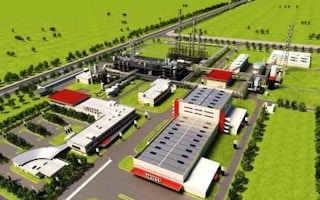Singaporeans can reduce their environmental footprints by switching to high-tech tires - if they know where to find them, according to a new study from consulting firm Frost & Sullivan.
The study, commissioned by Germany-based chemical giant Lanxess, revealed that a reduction of 352,600 tonnes of carbon dioxide (CO2) emissions – or five per cent of Singapore’s total - can be achieved each year if cars in Singapore were to be fitted with better performing tires.
This reduction would also help to save 144 million litres of fuel annually, which translates into a monetary saving of S$254 per car, based on an average 20,000 kilometres travelled each year.
The study by Frost & Sullivan suggested that while car owners in Singapore recognise that low rolling resistance - which decreases the amount of energy needed to propel a car - reduces fuel consumption, they are unaware of options to take advantage of the possible savings. Only 6 to 7 per cent of respondents were aware of any available measurements for road grip, noise or rolling resistance.
While environmental friendliness ranked only ninth out of 11 listed criteria for car purchase decisions, fuel efficiency was identified as a top priority. And 95 per cent of the 250 drivers surveyed said they would refer to tire labels for information on factors such as fuel efficiency if they were available during purchase.
Singapore has had a mandatory energy efficiency labelling system in place for appliances since 2008. The vast majority of drivers, 90 per cent, said that applying energy labelling to a wider range of products would lead to a reduction in Singapore’s energy consumption.
Mandatory tire labelling is gaining traction globally in recognition of the fact that tires are responsible for about 24 per cent of a vehicle’s CO2 emissions.
In November of next year, new European Union legislation will require tires to be labelled for fuel efficiency, wet grip and noise level. Similar legislation is either in place or under consideration in South Korea, Japan, the United States and Brazil.
Lanxess, which produces the specialised rubbers and chemical additives for more fuel-efficient tires, claims it has a major role to play in making the world’s cars more sustainable.
Dr. Werner Breuers, who heads research and development for the Lanxess management board, told Eco-Business in an e-mail interview that global growth in the use of cars is forcing national legislators to push the use of “green” low rolling resistance tires to protect the environment.
“We expect that the share of these high-performance tires compared to normal tires will rise by 77 per cent by 2015. They will soon be standard in Europe,” he said.
According to a May Bloomberg interview with Japanese tiremaker Sumitomo Rubber, global tire demand is growing faster than production, led by a 30 per cent increase in tires sales in China over 2010 levels. Sumitomo Rubber’s president said global tire sales for 2011 are predicted to reach 93.7 million.
At the same time, problems with air pollution and traffic congestion have recently prompted officials in China’s cities to call for restrictions on the number of new cars permitted on the roads.
Lanxess, which was recently included in the Dow Jones Sustainability Index (DJSI) - a high profile indicator of corporate sustainability - has positioned itself to meet the increased demand for specialised rubber by building a new €400 million plant on Singapore’s Jurong Island. Beginning in 2013, the plant will produce one of the key ingredients of the high-tech tires, a chemical called neodymium polybutadiene rubber (Nd-PBR).
Currently, all synthetic rubber products for tire making are petroleum oil-based, but Lanxess is working on making its tire rubber greener by using raw materials from renewable resources such as corn. This technology, developed jointly by Lanxess and United States-based renewable chemicals and biofuels company Gevo, is expected to achieve commercial production in five years.
Innovative materials such as high-tech tires and strong, lightweight plastics will be crucial to shaping the environmental credentials of cars in the future, said Dr Breuers.
“Intelligent chemical materials are a must if we are to achieve sustainable mobility and maybe even the zero-emissions car,” he added.

















